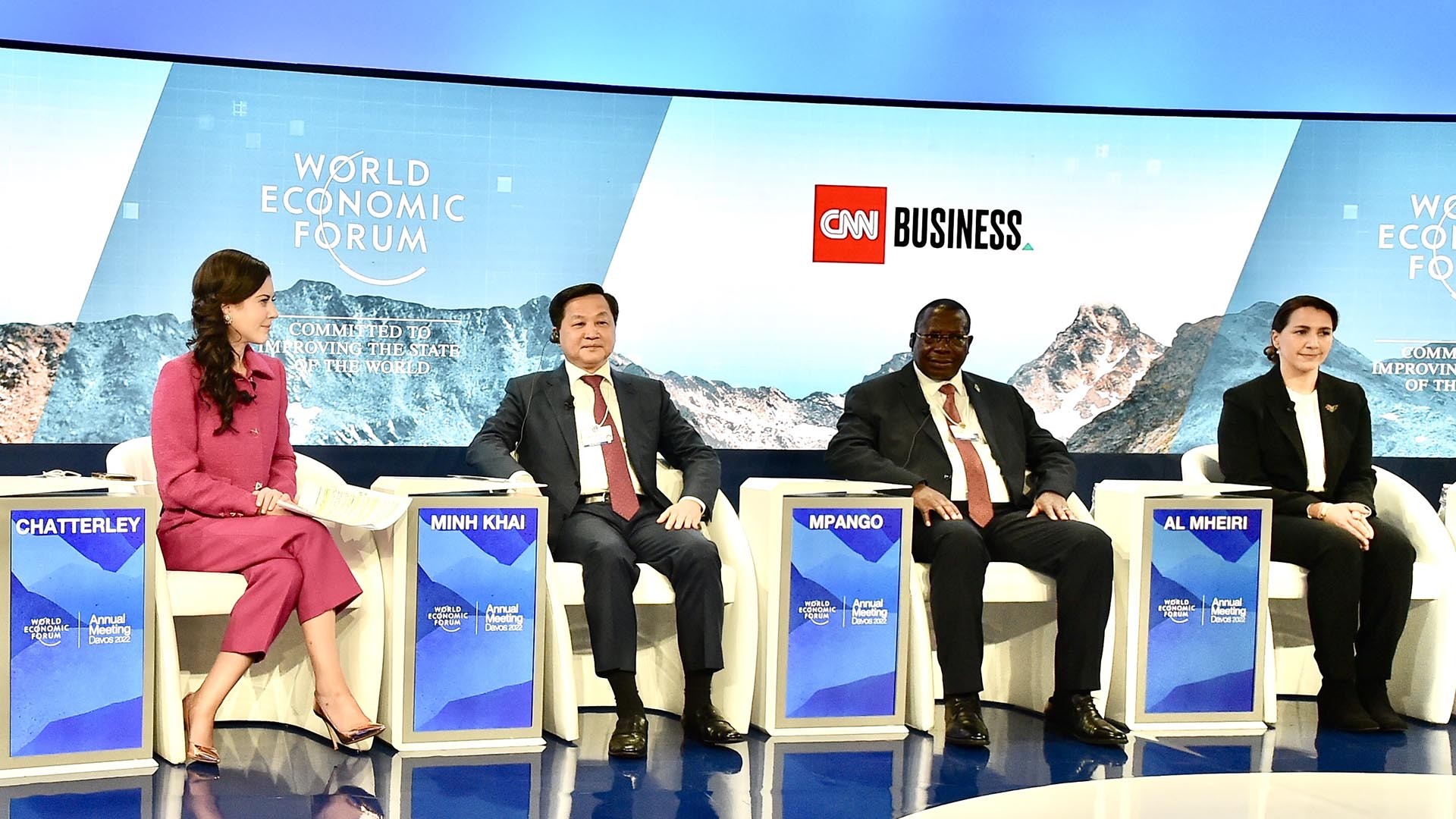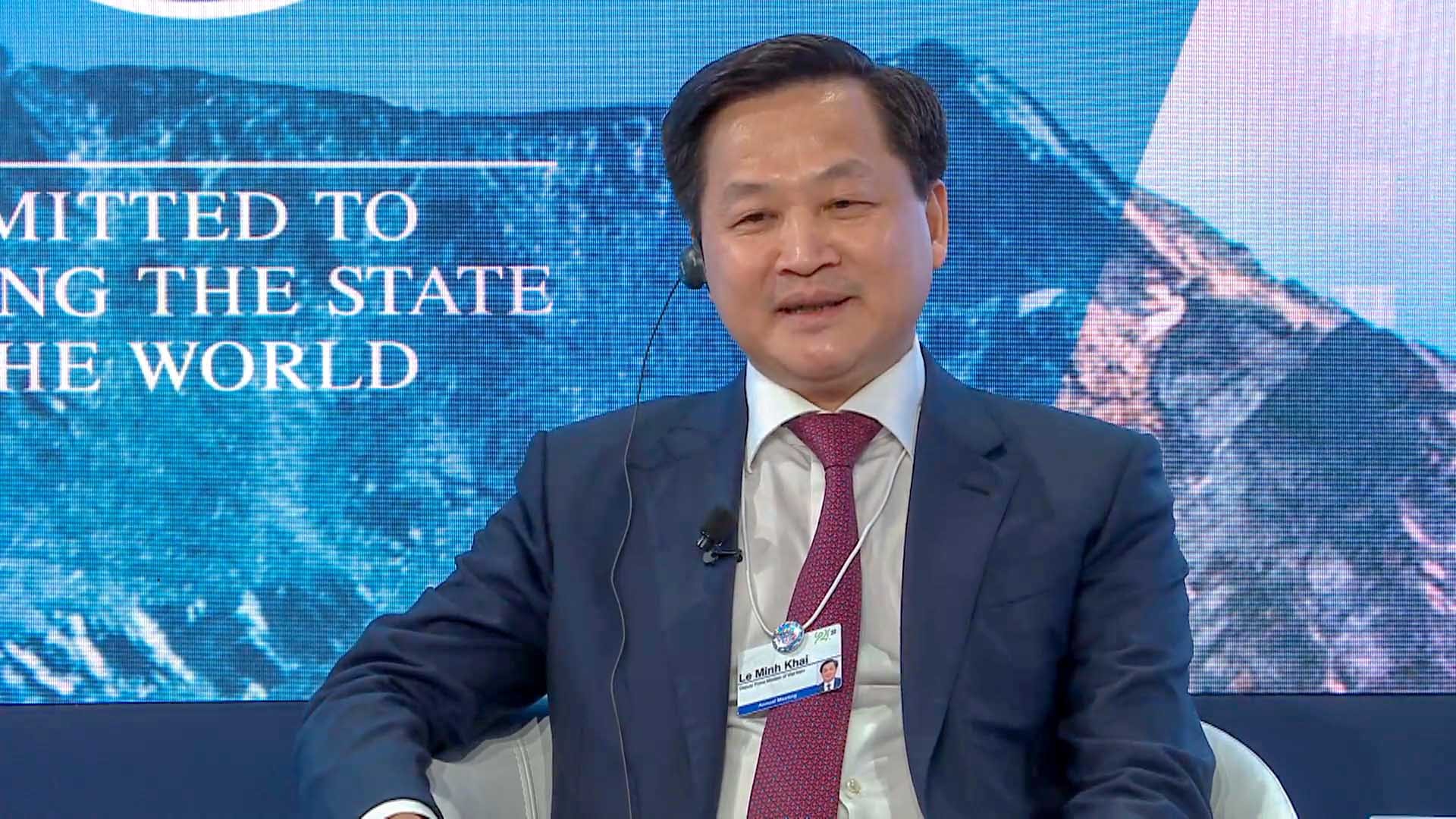
Deputy PM Le Minh Khai busy on the opening day of 52nd WEF annual meeting
Latest
 |
| Deputy Prime Minister Le Minh Khai (second from left) attends the “Averting a Global Food Crisis” session. |
He proposed the establishment of a food innovation hub for Southeast Asia in Viet Nam when addressing the “Averting a Global Food Crisis” session, a panel discussion with World Food Programme Executive Director David Beasley, UAE Climate and Environment Minister Mariam Mohammed Saeed Al Mheiri, Tanzania’s Vice President Philip Isdor Mpango, and CEO of the Swiss agriculture company Syngenta, J Erik Fyrwald.
Delivering the opening remarks, the Vietnamese Deputy PM addressed current food shortages and their severity in a number of countries.
“As you know we are going through a crisis on top of a crisis,” he said.
“The double impact of the COVID-19 pandemic and geo-political intentions in some countries have caused some unprecedented impacts on the supply and prices of the global food chain. It has left a direct impact on people’s lives, leaving millions of people facing food shortages.
“Climate change, digital transformation and green consumption and enhanced social responsibility have created multi-dimensional impacts on the global food system.”
 |
| Deputy Prime Minister Le Minh Khai at the “Averting a Global Food Crisis” session. |
Speaking from Viet Nam’s past experience as a country that had to import food but now is one of the important contributors to global food security, Khai proposed five recommendations to help alleviate food shortages around the world and sustain the global food system.
He said: “First, since food security concerns all people, it needs a holistic, multidimensional, multi-objective, long-term approach towards a self-reliant, inclusive and sustainable food system.
“At the moment it’s necessary to provide humanitarian support to a number of countries facing food shortages. And it’s also necessary to restore the global food supply system and curb the trade barriers in providing long-term food supply.
"Second, since food shortage is a global issue, international cooperation needs to be increased to promote the role of multidimensional organisations in food security. Countries need to work together in a tripartite mechanism to restore the global food supply system.
"Third, solutions related to food security must ensure social inclusion and involve people’s responsibility. People should be put at the center and considered the ultimate goal of all food security policies.
“We need to ensure the transition of food production towards an equitable and fair system that takes into consideration the interest of the disadvantaged and the vulnerable.”
He added, fourth, that it’s necessary to build an agro-ecological system with the participation of all stakeholders in the global food system.
Fifth, countries need to change mindsets and create all conditions to develop and promote a modern and sustainable agricultural sector.
“We need to take advantage of the fourth industrial revolution, apply digital technology, high technology to create a smart, sustainable agricultural value chain,” he said.
He concluded his remarks by proposing the formation of a food hub for Southeast Asia.
“As a country that has certain advantages in terms of agriculture and is moving towards digital transformation in agricultural production, we expect that countries, international organisations, and WEF members, will support the establishment of a food innovation hub for Southeast Asia, based in Viet Nam,” he said.
He also called on countries and international organisations to collaborate with Viet Nam to come up with measures to respond to climate change, and build an agricultural sector that meets domestic and international demands.
On the sidelines of the annual meeting, Deputy PM Khai met president pro tempore of the United States Senate Patrick Leahy, during which they expressed their delight at the strong development of the two countries' relations in various fields.
Khai thanked Senator Leahy and other US parliamentarians for backing the development of the bilateral ties, especially cooperation in addressing post-war consequences.
Leahy appreciated the outcomes of the recent meeting between US parliamentarians and Prime Minister Pham Minh Chinh in Washington D.C. during his trip to the US to attend the ASEAN-US Special Summit and pay working visits to the United Nations and the US. He added that he will visit Viet Nam in the coming time to continue boosting cooperation in priority fields.
Also on the day, the Vietnamese Deputy PM had working sessions with leaders of several groups such as Wonderloop, Horasis, Menzies Aviation, eHealth Foundation, NAS, Citibank, HSBC and ToGo. He affirmed that Viet Nam is determined to pursue a green growth roadmap, and attract green financial resources towards the country's sustainable development.
Businesses affirmed their desire to accompany and cooperate with Viet Nam in the field of green finance, energy transition, green growth, high technology, innovation, and human resources development.













